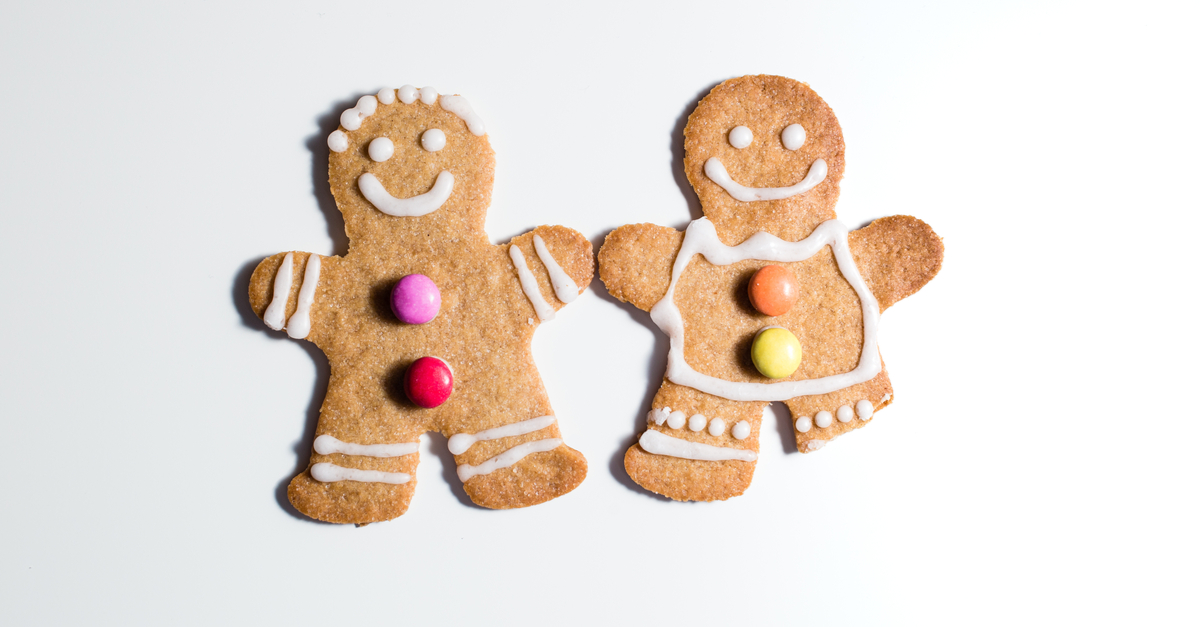 Scott Brassart
Scott Brassart
If you’re like me, when you hear the word holidays you picture a Norman Rockwell inspired scene of family—mom, dad, one boy, one girl, one cat, one dog, and two complete sets of grandparents who actually like their son or daughter in law—all gathered around a roaring fire to watch the kids joyfully unwrap their toy firetrucks and dolls. The fireplace is red brick, of course. The wallpaper is flocked. Mom’s hairdo is mostly Aqua Net. And there’s a jolly, twinkle-eyed Santa peeking out from behind Dad’s easy chair.
Because that’s what the holidays look like, right?
OK, maybe not. In reality, the holidays, whichever ones we choose to celebrate, are typically filled with stress, anxiety, and a to-do list that’s several times longer than normal. For those of us who deal with issues like anxiety, depression, addiction, and relationship betrayal, it can feel like there’s a dark shadow lurking around every holiday corner. Nevertheless, we’re going to feel at least a little bit (or a lot) of social pressure to have a joyous, loving, intimately connected holiday. Non-stop.
But life is not a Norman Rockwell painting. Our decorations will not be perfect. We’ll overcook the ham. And not every loved one is going to adore every gift we give. But that doesn’t stop us from thinking that the holidays are a perfect time of year unless we screw it up. We feel like everyone else is doing the holidays to Martha Stewart standards.
So yeah, the holidays can be pretty stressful. And in the midst of all this craziness, it’s pretty easy to lose sight of what’s most important in our lives: being whole, happy, and connected. And isn’t that what the holidays are truly about? Without this, enjoying the wonderful parts of the holiday season is almost impossible.
The good news is that there are plenty of simple things we can do to ground ourselves when we feel overwhelmed by the holiday season (or anything else). First and foremost, we can check in with ourselves to see where we are emotionally and psychologically, asking ourselves questions like:
- Am I feeling impulsive or obsessive about anything?
- Do I have idealized (i.e., unrealistic) expectations of myself, family, friends, or holiday gatherings?
- At this moment, am I feeling hungry, angry, anxious, lonely, or tired?
- Am I keeping any (non-gift) secrets or telling any lies?
If we answer yes to one or more of these questions, we should take contrary action. A few things to consider are:
- Engage in Basic Self-Care: Yes, we’re all busy trying to create holiday perfection for ourselves and our loved ones. But we still need to eat right, exercise, and get enough sleep. If we don’t, we will add to our stress, increasing our odds for anxiety, depression, shame, and resentments. Often, it is helpful to schedule some quiet time each day where we can relax and clear our heads.
- Plan for Triggers: The holidays are filled with people and events and obligations that trigger us toward anxiety, depression, shame, and resentments. Often, these things can be seen well in advance. In such cases, we can prepare ourselves to face them with a workable plan for sanity. We can check in with a friend both before and after these potential triggers occur. We can take a loved one along for support and companionship. We can talk about these potential triggers with our support network and ask for advice on how to best handle them. Etc.
- Accept that Other People Are Not Going to Behave as We Want Them to Behave: People are odd and often annoying creatures, and there is nothing we can do to change them. What we can do is change our attitude about their quirky behaviors. We can remind ourselves that our mother-in-law is going to follow us around the kitchen making endless suggestions about the proper way to make green-bean casserole, our cousin is going to put half a stick of butter on every dinner roll, and our kids are going to be on a two-week sugar high. When we take a step back from all of this and consciously choose to accept and love the people around us exactly as they are, we may find them entertaining rather than annoying. Or, if we feel a need to get self-righteous (and who doesn’t?), we can view our gracious acceptance of others and their horrible habits as our holiday gift to the world.
- Find Gratitude: OK, this is the big Kahuna. Whatever form of emotional discomfort it is that we’re feeling, gratitude will cure it. Individuals who are anxious, depressed, stressed, and resentful are often coached to create a 10-item gratitude list every morning, and to refer to that list often during the day because it’s almost impossible to feel gratitude and unhappiness at the same time. So, when we feel down during the holidays, pausing and creating a ten-item gratitude list is an incredibly effective way to shift our mood. We can be grateful that we have a home, a job, a family, healthy kids, food in the fridge, etc. When we do that, the stress and resentments we were feeling about the holidays become much less important.
Whatever we do during this holiday season, we need to stay grounded. This means we must remember that taking care of ourselves and feeling connected with our loved ones is the real goal, and maybe the only goal. With that in mind, the best holiday gift we can give to ourselves and our families is likely to involve at least a little bit of self-care, acceptance, and gratitude.
* * * * * * * * * *
If you are struggling with your partner’s betrayal during the holidays and beyond, Seeking Integrity can help. For starters, you may want to consider our low-cost online workgroup for betrayed partners. The next session starts January 4, 2023. We also offer numerous free webinars and discussion groups for betrayed partners.
